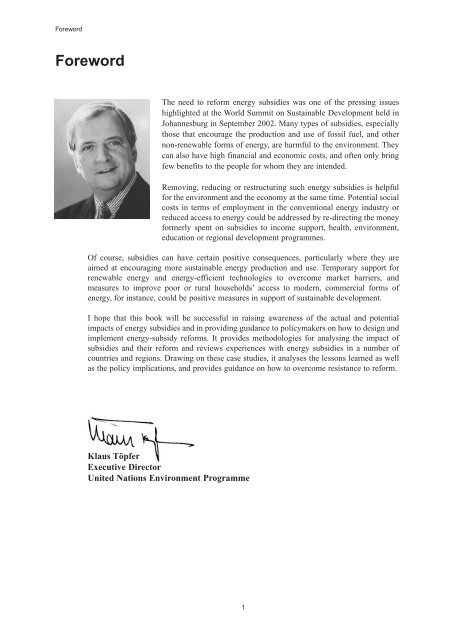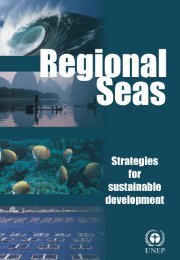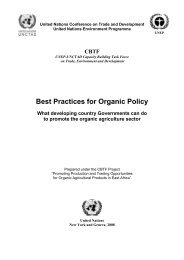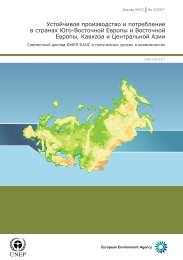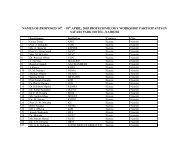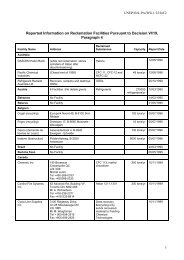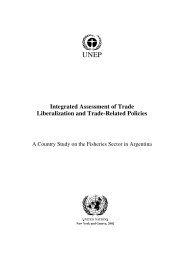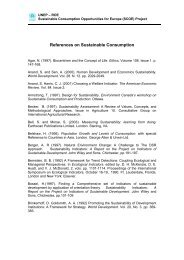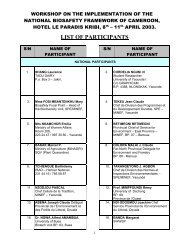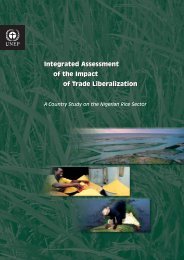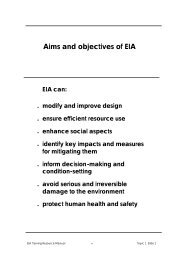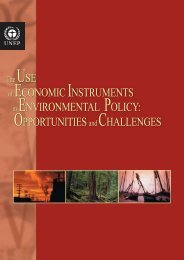Energy Subsidies: Lessons Learned in Assessing their Impact - UNEP
Energy Subsidies: Lessons Learned in Assessing their Impact - UNEP
Energy Subsidies: Lessons Learned in Assessing their Impact - UNEP
Create successful ePaper yourself
Turn your PDF publications into a flip-book with our unique Google optimized e-Paper software.
Foreword<br />
Foreword<br />
The need to reform energy subsidies was one of the press<strong>in</strong>g issues<br />
highlighted at the World Summit on Susta<strong>in</strong>able Development held <strong>in</strong><br />
Johannesburg <strong>in</strong> September 2002. Many types of subsidies, especially<br />
those that encourage the production and use of fossil fuel, and other<br />
non-renewable forms of energy, are harmful to the environment. They<br />
can also have high f<strong>in</strong>ancial and economic costs, and often only br<strong>in</strong>g<br />
few benefits to the people for whom they are <strong>in</strong>tended.<br />
Remov<strong>in</strong>g, reduc<strong>in</strong>g or restructur<strong>in</strong>g such energy subsidies is helpful<br />
for the environment and the economy at the same time. Potential social<br />
costs <strong>in</strong> terms of employment <strong>in</strong> the conventional energy <strong>in</strong>dustry or<br />
reduced access to energy could be addressed by re-direct<strong>in</strong>g the money<br />
formerly spent on subsidies to <strong>in</strong>come support, health, environment,<br />
education or regional development programmes.<br />
Of course, subsidies can have certa<strong>in</strong> positive consequences, particularly where they are<br />
aimed at encourag<strong>in</strong>g more susta<strong>in</strong>able energy production and use. Temporary support for<br />
renewable energy and energy-efficient technologies to overcome market barriers, and<br />
measures to improve poor or rural households’ access to modern, commercial forms of<br />
energy, for <strong>in</strong>stance, could be positive measures <strong>in</strong> support of susta<strong>in</strong>able development.<br />
I hope that this book will be successful <strong>in</strong> rais<strong>in</strong>g awareness of the actual and potential<br />
impacts of energy subsidies and <strong>in</strong> provid<strong>in</strong>g guidance to policymakers on how to design and<br />
implement energy-subsidy reforms. It provides methodologies for analys<strong>in</strong>g the impact of<br />
subsidies and <strong>their</strong> reform and reviews experiences with energy subsidies <strong>in</strong> a number of<br />
countries and regions. Draw<strong>in</strong>g on these case studies, it analyses the lessons learned as well<br />
as the policy implications, and provides guidance on how to overcome resistance to reform.<br />
Klaus Töpfer<br />
Executive Director<br />
United Nations Environment Programme<br />
1


